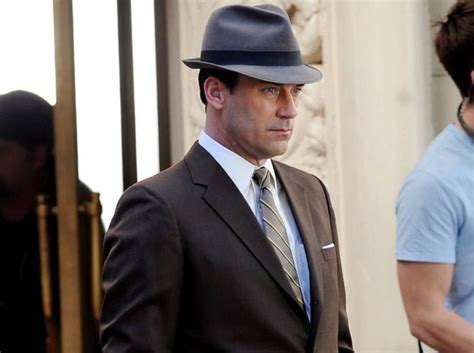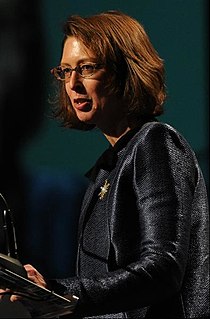Top 361 Bitcoin Quotes & Sayings - Page 6
Explore popular Bitcoin quotes.
Last updated on April 20, 2025.
After two years working with bitcoin and blockchain companies and corporate leaders, we identified that a significant issue hindering the widespread, global adoption of blockchain is the inability to quickly connect with the right combination of partners for testing and deployment of the technology to address real-world business challenges.
Exchanging bitcoin on behalf of ransomware victims should not be construed as criminal activity by the exchanger, not as a matter of law nor as sound policy. Such an interpretation would set a precedent that would surely cause real harm to the public, to the blockchain ecosystem, and to the financial services industry as a whole.
In the aftermath of the oh-so-predictable crash, the Bitcoin fanatics have begun marshaling out excuse after excuse for why this non-investment investment lost so much of its value so fast. One was that hackers attacked some of the exchanges for Bitcoins and crippled it. Really? A hacker can wreck an entire market?
We need to come up with use cases for this technology that drive clear benefits for individuals and institutions - these are our customers. Too often we see bitcoin and blockchain technologies as solutions in search of a problem. We don't just need these systems to be technically better than the alternatives - we need them to be more user-friendly.
Privacy is an age of universal email collection and spying, with millions of CCTV cameras and warrantless spying pervasive; privacy has become virtually nonexistent and, therefore, extremely scarce and desirable. Bitcoin can be a completely anonymous transaction that maintains the user's privacy beyond the reach of any authority.
When you drill down, blockchains are really a shared version of reality everyone agrees on. So whether it's a fully immersive VR experience, augmented reality, or even Bitcoin or Ethereum in the physical world as a shared ledger for our 'real world,' we'll increasingly trust blockchains as our basis for reality.
The blockchain concept was pioneered within the context of crypto-currency Bitcoin, but engineers have imagined many other ways for distributed ledger technology to streamline the world. Stock exchanges and big banks, for example, are looking at blockchain-type systems as trading settlement platforms.
Most of the big breakthrough technologies/companies seem crazy at first: PCs, the internet, Bitcoin, Airbnb, Uber, 140 characters.. It has to be a radical product. It has to be something where, when people look at it, at first they say, ‘I don’t get it, I don’t understand it. I think it’s too weird, I think it’s too unusual.’
When people write the history of this thing, of bitcoin, they are not going to write the story of 6 million to a billion. What is truly remarkable is the story of zero to 6 million. It has already happened! And we’re not paying attention! That’s incredible. That’s what had one chance in a million and it already happened.
Bitcoin is a peer-to-peer, decentralized form of money, as durable as the Internet itself. Remember, the Internet - or DARPA, as it was originally called - was created as a fail-safe, global network with no 'single point of failure.' If one part goes down, data takes another route, and nothing is lost.
A new product, technology, or innovation - such as Bitcoin - has the potential to give rise both to frauds and high-risk investment opportunities. Potential investors can be easily enticed with the promise of high returns in a new investment space and also may be less skeptical when assessing something novel, new, and cutting-edge.
With Bitcoin, every transaction is publicly verified, so many risks are eliminated, including chargeback fraud or 'friendly fraud.' This is when a customer purchases something online with a credit card; waits to receive the goods or service, then requests a chargeback refund. The bank then forcibly takes the funds out of the merchant's account.
I do not understand where the backing of Bitcoin is coming from. There is no fundamental issue of capabilities of repaying it in anything which is universally acceptable, which is either intrinsic value of the currency or the credit or trust of the individual who is issuing the money, whether it's a government or an individual.
When we look at government in Washington or what's happening on Wall Street, we see so much centralization. But really, our goals should be to eliminate and overcome these central institutions. And in recent years we have gained powerful new tools to do this, and most significant among those is the block chain, which is the software behind Bitcoin.
Until part of your paycheck is regularly paid in Bitcoin, I'm not sure how it would really go mainstream. I can imagine places in the world where there are not functioning banking systems or payroll systems, where it could go mainstream first because you're not trying to replace the way people are already doing something.
Coinbase is 'the' brand in the Bitcoin space. Their founder Brian Armstrong was amongst the first good entrepreneurs to emerge in this space. While others championed ideological or underground/illicit interests, Brian saw an opportunity to change the world for the better and build a big business out of it.
It is one thing to think gold has some marvelous store of value because man has no way of inventing more gold or getting it very easily, so it has the advantage of rarity. Believe me, man is capable of somehow creating more bitcoin... They tell you there are rules and they can't do it. Don't believe them.


































